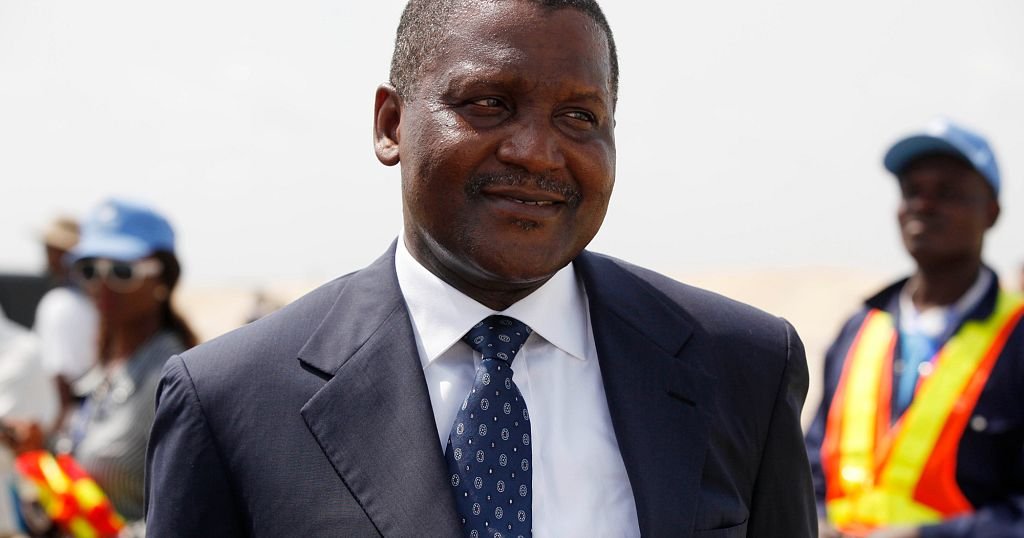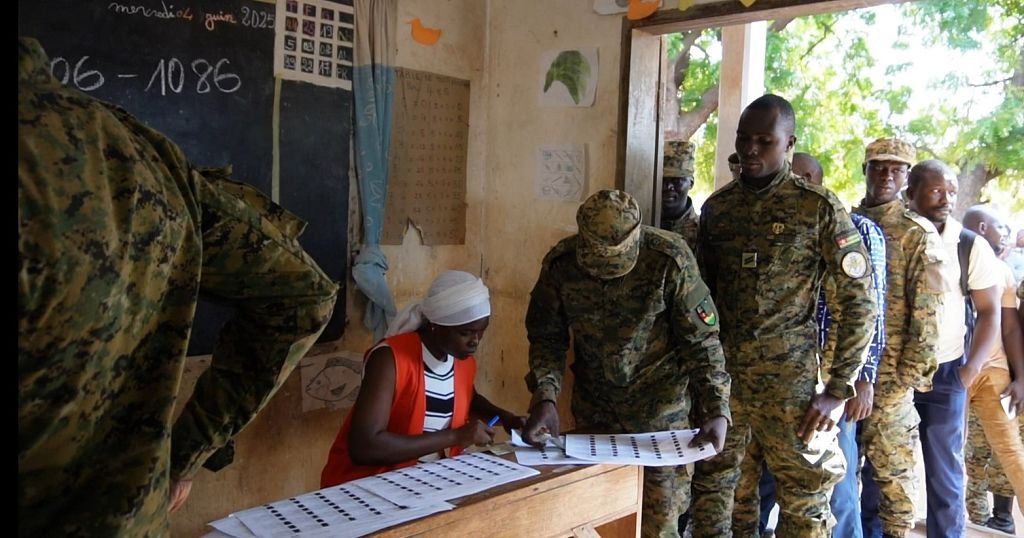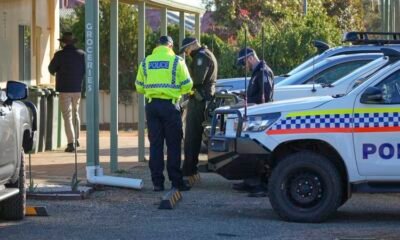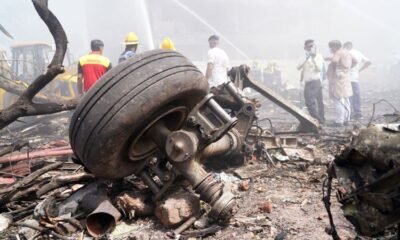Africa
Venezuela’s Maduro calls US Secretary of State Marco Rubio an ‘imbecile’

Venezuela’s president Nicolás Maduro hit out at U.S Secretary of State Marco Rubio on Thursday, calling him an “imbecile” following the American official’s visit to neighbouring Guyana.
During Rubio’s visit he vowed that the United States will respond forcefully if Venezuela attacks Guyana, amid an ongoing territorial dispute that includes massive oil and gas reserves.
Rubio said it would be a “very bad day” for Venezuela should that happen as he signed a security agreement with Guyana.
“The imbecile Marco Rubio comes out threatening Venezuela from Guyana,” Maduro said as he attended an event in Miranda state.
“Venezuela can’t be threatened by anyone because this is the homeland of the liberators.”
Maduro also denounced El Salvador’s President Nayib Bukele, claiming that lawyers hired by Venezuela to represent those deported from the U.S. had not been allowed access to the prisons they were being detained in.
The U.S. deported hundreds of immigrants after President Donald Trump invoked the Alien Enemies Act for the first time since World War II, using the sweeping powers of a centuries-old wartime law to target alleged members of a Venezuelan gang.
The Alien Enemies Act gives the president wartime powers and allows noncitizens to be deported without the opportunity to go before an immigration or federal court judge.
Africa
Dangote submits paperwork to build “biggest, deepest” port in Nigeria

Fertiliser, oil, liquefied natural gas, cement… The Dangote conglomerate, a group owned by Africa’s richest man, Aliko Dangote, is active in a range of industries.
Exporting its many products is key for the group – and now, plans for a new port could help with that.
Dangote reportedly submitted a construction proposal for a seaport located in Ogun state in southwestern Nigeria to the regional authorities in late June.
The project could be the biggest and deepest port in Nigeria. According to the proposal, the port would be constructed in the Olokola Free Trade Zone, a project initially abandoned by Dangote over unresolved issues with the previous local administration.
The port’s planned location is around 100 km away from key Dangote fertilizer and petrochemical plants in Lagos. Initially, these plants were supposed to also be located in the Free Trade Zone in Ogun state, but the stalled negotiations between the conglomerate and the state’s previous administration led to plants eventually being built near Lagos.
It is for now unclear whether the proposal for the new port has been accepted.
Africa
Islamic preachers in Burkina Faso rally against social media hate

Nearly 250 imams and Islamic preachers joined a national awareness session against online hate speech Saturday and Sunday, following a surge in extremist violence in Burkina Faso.
At the workshop hosted by Burkina Faso’s Federation of Islamic Associations (FAIB), attendees were handed a guide on public speaking for preachers which forbids the use of Islamic discourse to disturb stability, including insulting and violent rhetoric, RFI reported.
”We encourage Muslim youth to use social media responsibly and are committed to strengthening the ongoing training of imams and preachers on digital issues and religious communication”, the federation said on Facebook following the workshop.
Failure to comply with the new code of conduct online may result in disciplinary or even criminal sanctions: including a ban of up to two years from preaching, RFI reported.
In October, a video emerged of a preacher urging his supporters to attack members of another Muslim congregation. The incident made FAIB sound the alarm on the ”emergence of dangerous deviations in religious discourse”, according to RFI.
The growing number of social media users in Africa is a “double-edged sword”, according to a UNDP report, due to its utility for violent actors to “market extremist ideas and spread terror to different audiences around the world”.
Social media platforms can facilitate radicalisation by promoting content with emotional appeal that taps into the grievances of users and reinforces their frustrations, according to the report.
The proliferation of religious hate speech online is concerning amid a surge in violent extremism in Burkina Faso. Terrorism-related deaths in the Sahel region have soared past 6,000 for three consecutive years, making up more than half of all global fatalities, said UN Deputy Secretary-General Amina Mohammed in January.
In this time, Burkina Faso has seen a 68% increase in terrorism fatalities, making it the leading country in the world for terrorism deaths, according to UN figures.
Africa
Togo’s security forces cast early votes ahead of high-stakes municipal elections

The atmosphere was calm and disciplined on Monday, July 14, 2025, in Lomé, as Togo’s security and defense forces, including paramilitary units and members of the operational reserve, cast their ballots in early voting ahead of the municipal elections. This special vote was organized to allow them to fulfill their civic duty while remaining available to ensure the security of the general election scheduled for July 17.
At the polling station, the voting process went smoothly in a strictly orderly environment.
“There hasn’t been a single incident. So far, everything is going well, and they are voting calmly,” said Poutouli Pisseyem, the polling station president. “They follow all our instructions,” he added.
This early vote marks the official kickoff of a highly anticipated municipal election, watched closely by both the political class and a public caught between hope and caution. On the ground, the campaign is in full swing. Political parties and independent candidates are making rounds to win over voters. Supporters of the ruling party, UNIR, are focused on consolidating progress.
“Go vote, vote for UNIR, because we need continuity in the work already being done,” said Geneviève Amégnaglo, a local UNIR delegate.
On the opposition side, some leaders insist on maintaining their presence despite boycott calls from parts of civil society.
“To improve living conditions, the opposition must take part and show what it’s capable of,” said opposition leader Jean-Pierre Fabre.
Still, the apparent calm masks underlying tensions. Civil society groups have called for days of mourning on July 14 and 15, while web activists from the M66 movement have announced protests for July 16 and 17, the day of the vote.
With just hours left before polls open for the general public, the streets are watching, uncertain. Togo’s democracy is facing another major test, under close watch.
-

 Europe5 days ago
Europe5 days agoWhat will happen now that Trump has turned on Putin?
-

 Lifestyle5 days ago
Lifestyle5 days agoPhotos of Cuban women with long decorated nails
-

 Sports5 days ago
Sports5 days agoBill Ackman: Swift backlash after billionaire’s pro debut
-

 Europe4 days ago
Europe4 days agoGerman tourist found alive 12 days after she was lost in the Australian Outback
-

 Lifestyle4 days ago
Lifestyle4 days agoOne Tech Tip: All the ways to unsubscribe, after ‘click-to-cancel’ was blocked
-

 Lifestyle5 days ago
Lifestyle5 days agoCuban women spend on extravagant nail art
-

 Asia4 days ago
Asia4 days agoAir India crash: Engine fuel supply was cut just before Air India jet crash, preliminary report says
-

 Lifestyle5 days ago
Lifestyle5 days agoSebeiba festival in Algeria carries on ancient tradition




